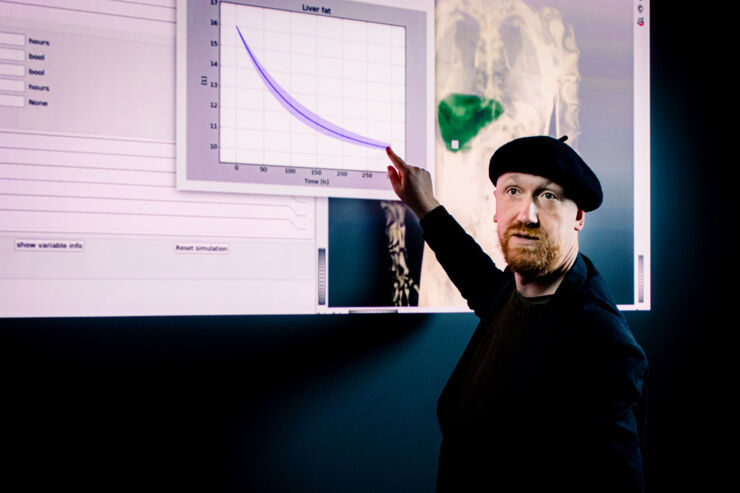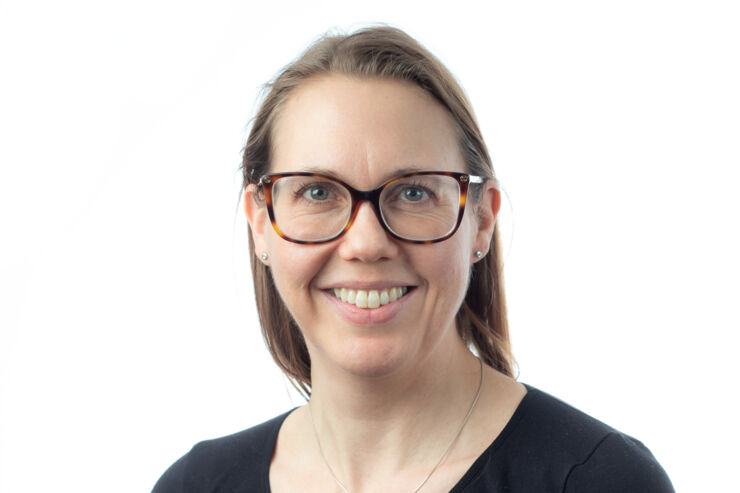The projects has also to be performed within the grant amount. Here are the projects:
 Kristin Thomas.As many as every fourth woman report worry, anxiety or depressiveness during pregnancy. To increase mental health among pregnant women, early intervention and prevention are key actions, and both the promotion of positive mental health and support for mental ill health needs be considered. This interview study aims to increase our knowledge on positive mental health during pregnancy, novel knowledge that will be used to develop and tailor a new app targeting pregnancy (HealthyMoms4MentalHealth). The project involves interviews with pregnant women, new mothers and health care professionals working at Women’s Healthcare Centres, Obstetrics and Gynaecology departments and Child Health Care Centres. The project will be conducted in Region Östergötland, Halland and Stockholm.
Kristin Thomas.As many as every fourth woman report worry, anxiety or depressiveness during pregnancy. To increase mental health among pregnant women, early intervention and prevention are key actions, and both the promotion of positive mental health and support for mental ill health needs be considered. This interview study aims to increase our knowledge on positive mental health during pregnancy, novel knowledge that will be used to develop and tailor a new app targeting pregnancy (HealthyMoms4MentalHealth). The project involves interviews with pregnant women, new mothers and health care professionals working at Women’s Healthcare Centres, Obstetrics and Gynaecology departments and Child Health Care Centres. The project will be conducted in Region Östergötland, Halland and Stockholm.
 Gunnar Cedersund. Photo credit Emma Busk WinquistOne of the main limitations of today's healthcare system is that it is centralized and fragmented (Fig 1A). Both these limitations could potentially be overcome using our unique technology: physiologically based digital twins. Our digital twins are personalized computer models of a patient. What makes our digital twin technology unique in the world is that they describe central physiological processes within all of the main human organs - brain, pancreas, liver, etc. - including cross-talk between these organs1-8. While there are many other groups and large consortia (Virtual Liver Network, Human Brain Project, etc.), that have developed corresponding organ models, we are the only ones who have developed an integrated model for the organ-organ crosstalk. This interconnected aspect opens the door to many eHealth-applications. We can e.g. simulate how a specific patient is expected to respond to a change in diet, exercise, or to certain medications. Our main hypothesis is that such simulations - if presented appropriately in different clinical contexts - can lead to improved patient understanding, motivation, and compliance to prescribed treatments. In other words, by seeing your own digital twin eat better or take a certain medication, and by seeing how this improves the digital twin's body, we hypothesize that the patient will be more motivated to do the same. We have already developed a first prototype of this technology. However, in the existing platform, we do not have a state-of-the-art method for dealing securely with the data, in a way that can be translated internationally, and presented in key clinical contexts. AIM: In this seed-project, we will explore a new collaboration for such data handling and visualization, to create preliminary data needed for upcoming VINNOVA and EU applications.
Gunnar Cedersund. Photo credit Emma Busk WinquistOne of the main limitations of today's healthcare system is that it is centralized and fragmented (Fig 1A). Both these limitations could potentially be overcome using our unique technology: physiologically based digital twins. Our digital twins are personalized computer models of a patient. What makes our digital twin technology unique in the world is that they describe central physiological processes within all of the main human organs - brain, pancreas, liver, etc. - including cross-talk between these organs1-8. While there are many other groups and large consortia (Virtual Liver Network, Human Brain Project, etc.), that have developed corresponding organ models, we are the only ones who have developed an integrated model for the organ-organ crosstalk. This interconnected aspect opens the door to many eHealth-applications. We can e.g. simulate how a specific patient is expected to respond to a change in diet, exercise, or to certain medications. Our main hypothesis is that such simulations - if presented appropriately in different clinical contexts - can lead to improved patient understanding, motivation, and compliance to prescribed treatments. In other words, by seeing your own digital twin eat better or take a certain medication, and by seeing how this improves the digital twin's body, we hypothesize that the patient will be more motivated to do the same. We have already developed a first prototype of this technology. However, in the existing platform, we do not have a state-of-the-art method for dealing securely with the data, in a way that can be translated internationally, and presented in key clinical contexts. AIM: In this seed-project, we will explore a new collaboration for such data handling and visualization, to create preliminary data needed for upcoming VINNOVA and EU applications.
 Early diagnosis of acute decompensated heart failure is important because of the early introduction of effective treatment and care. Recently a novel medical device to non-invasively assess fluid congestion has been developed (the Sensible Medical ReDS Vest, Amir O, et al. 2013). In the project founded by the e-Health, we will (1) develop a new algorithm for the diagnosis of acute exacerbation of heart failure using the new medical device and (2) examine whether the new algorithm improves the ability to identify patients with acute decompensated of heart failure in nurse-led heart failure clinics, compared with the traditional algorism without the new device. The new algorithm may lead to an improvement of nursing care and patient outcomes (e.g., quality of life, days alive and out of hospital) in nurse-led heart failure clinics.
Early diagnosis of acute decompensated heart failure is important because of the early introduction of effective treatment and care. Recently a novel medical device to non-invasively assess fluid congestion has been developed (the Sensible Medical ReDS Vest, Amir O, et al. 2013). In the project founded by the e-Health, we will (1) develop a new algorithm for the diagnosis of acute exacerbation of heart failure using the new medical device and (2) examine whether the new algorithm improves the ability to identify patients with acute decompensated of heart failure in nurse-led heart failure clinics, compared with the traditional algorism without the new device. The new algorithm may lead to an improvement of nursing care and patient outcomes (e.g., quality of life, days alive and out of hospital) in nurse-led heart failure clinics.
 Karin Rådholm. Photo credit Emma Busk WinquistThe seed-grant will be used to for a feasibility study of 100 individuals in preparation for a full-scale randomized controlled intervention trial of a mHealth intervention to improve clinical management of type 2 diabetes mellitus in primary care. The feasibility study will test home-based blood tests and patients’ interest in using mHealth interventions by a questionnaire loosely based on the ‘The mHealth App Usability Questionnaire’ (MAUQ), administered via the Symptoms platform (the technical platform planned to be used in the full-scale trial).
Karin Rådholm. Photo credit Emma Busk WinquistThe seed-grant will be used to for a feasibility study of 100 individuals in preparation for a full-scale randomized controlled intervention trial of a mHealth intervention to improve clinical management of type 2 diabetes mellitus in primary care. The feasibility study will test home-based blood tests and patients’ interest in using mHealth interventions by a questionnaire loosely based on the ‘The mHealth App Usability Questionnaire’ (MAUQ), administered via the Symptoms platform (the technical platform planned to be used in the full-scale trial).
E-Health Seed grants receivers 2022
Four projects receives the E-health Seed grants 2022. This grant aims to give the investigators a better idea of feasibility and directionality of research before applying for more funds from other sources.